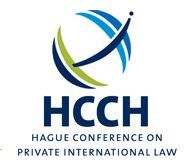International Custody & Abduction
Toronto Lawyers for International Custody & Abduction
Entered into force on December 1, 1983, The Hague Convention on the Civil Aspects of International Child Abduction is a multilateral treaty which seeks to protect children under the age of 16 from the harmful effects of international abduction by a parent.
As of July 2019, 101 states are party to the Convention.
The Purpose of the Treaty
Developed by the Hague Conference on Private International Law (HCCH), the treaty provides a procedure when the other parent takes, or threatens to take, the child outside of their home country.
By promoting international co-operation, the treaty serves to provide an efficient method to return children to their country of habitual residence. Whatever status quo child custody arrangement existed in the past is preserved by the Convention. Once the child returns home, the courts there can decide on custody and access related issues.
Each country that is party to the Convention must have a Central Authority. This party acts as the main point of contact between parents and governments involved in abduction cases and has the responsibility to help locate and facilitate the safe return of the child.
When the Hague Convention Applies
Your restraining order will either be temporary or final, meaning that it may expire within 1 year or the termination date will be set by the presiding judge. The order may include some of the following conditions: You can file an application under the Hague convention if your child is younger than 16 years old, your child habitually resided in Canada before being abducted to another country, your child is in a country that applies the Hague Convention with Canada, and you had and were exercising your custody or access rights at the time of the abduction.
A child’s habitual residence, or where they normally lived, is determined by the Hague Convention. Factors including the parents’ intentions, how long a child has lived in a country, and the child’s relationship with a country are considered.
How to Apply Under the Hague Convention
Contact your provincial/territorial Central Authority as soon as you can after your child is abducted or retained. You will receive application instructions, such as additional steps you will have to take or documents you will have to provide.
Once your application is complete, the Central Authority in the country your child has been abducted or retained in will be notified. The two Central Authorities will work together to facilitate the speedy return of your child or at least provide you with access to your child.
When the Hague Convention Does Not Apply
If your child is in a country that is not a party to the Hague Convention, there may be unique processes that can be used to bring about their prompt return.
Michael Stangarone
MacDonald and Partners, Michael Stangarone has specific expertise in international abduction (Hague Convention) cases and non-Hague international child abductions, having argued cases at the Ontario Superior Court of Justice, the Ontario Court of Appeal and the New Brunswick Court of Appeal.
Frequently Asked Questions (FAQs):
- What countries are part of the Hague Convention?
The following countries are part of the Hague Convention: Albania, Argentina, Armenia, Austria, Bahamas, Belarus, Belgium, Belize, Bosnia and Herzegovina, Brazil, Bulgaria, Burkina Faso, Canada, Chile, Colombia, Costa Rica, Croatia, Cyprus, Czech Republic, Denmark, Dominican Republic, Ecuador, El Salvador, Estonia, Fiji, Finland, France, Georgia, Germany, Greece, Guatemala, Honduras, Hong Kong (China), Hungary, Iceland, Ireland, Israel, Italy, Japan, Latvia, Lithuania, Luxembourg, Macau (China), Malta, Mauritius, Mexico, Moldova, Republic of Monaco, Montenegro, Netherlands, New Zealand, Nicaragua, Norway, Panama, Paraguay, Peru, Poland, Portugal, Republic of Korea (from 1 June 2015), Romania, Saint Kitts and Nevis, San Marino, Serbia, Singapore, Slovakia, Slovenia, South Africa, Spain, Sri Lanka, Sweden, Switzerland, Thailand, The Former Yugoslav Republic of Macedonia (FYROM), Trinidad and Tobago, Turkey, Turkmenistan, Ukraine, United Kingdom, United States of America, Uruguay, Uzbekistan, Venezuela and Zimbabwe.






